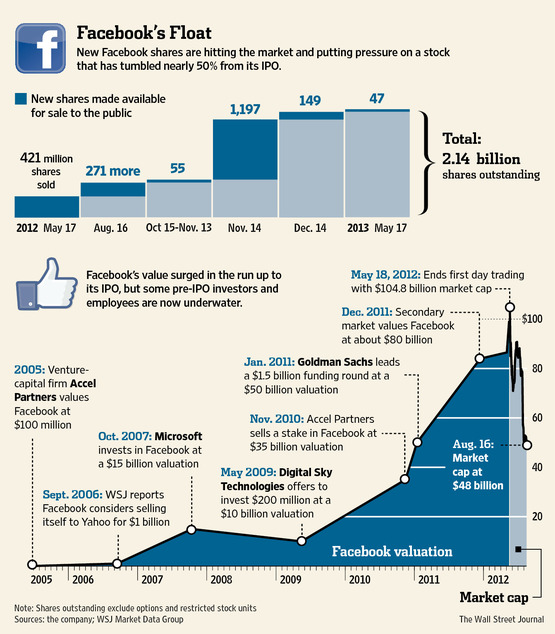Midpack
Give me a museum and I'll fill it. (Picasso) Give me a forum ...
I'm not "on" FB (only due to DW's privacy concerns), but I look at sites all the time there. Many companies are keeping their FB pages up to date better than their conventional websites.I just don't get it (Facebook). I'm 61 and have no desire to use it or Twitter (nor do my 35 and 36 year old "kids"), and frankly I'm sick of all the "check us out on FB, follow us on Twitter, blah blah blah." I about puked last night when I turned on Deadliest Catch and they were posting tweets on the damn picture...as if the continuous network logos and banner ads on TV weren't bad enough. As for a stock completely predicated on advertising revenue, I cannot imagine that it is that powerful to warrant the projected returns. I've always thought that if everyone spent like I do, the economy would collapse, and I suspect most on this board behave (consumer wise) the same way I do. I have to think long and hard to tie any purchasing decisions I have made to advertising. Won't say I'm immune, but I'm a fan of generics and value purchasing. The FB hype reminds me so of the dot.com bust. When it comes to an IPO like FB I have to ask, "why would these billionaires and Wall Streeters offer me, the retail investor, a good price on something that is worth a whole lot more eventually?" Does that even make sense? Sorry for the rant.
I didn't think I was interested in Twitter either as I thought it was basically another form of texting for kids. I try to keep an open mind (and not be like my 90 YO parents who decide they don't like something without even trying it) so I tried it out and found it has other great uses, so I joined and I don't regret it. By following sites of interest to me (hobbies, magazines, newspapers, groups), I can keep up with about 40 favorites in one place - instead of having to check 40 different websites.
YMMV

